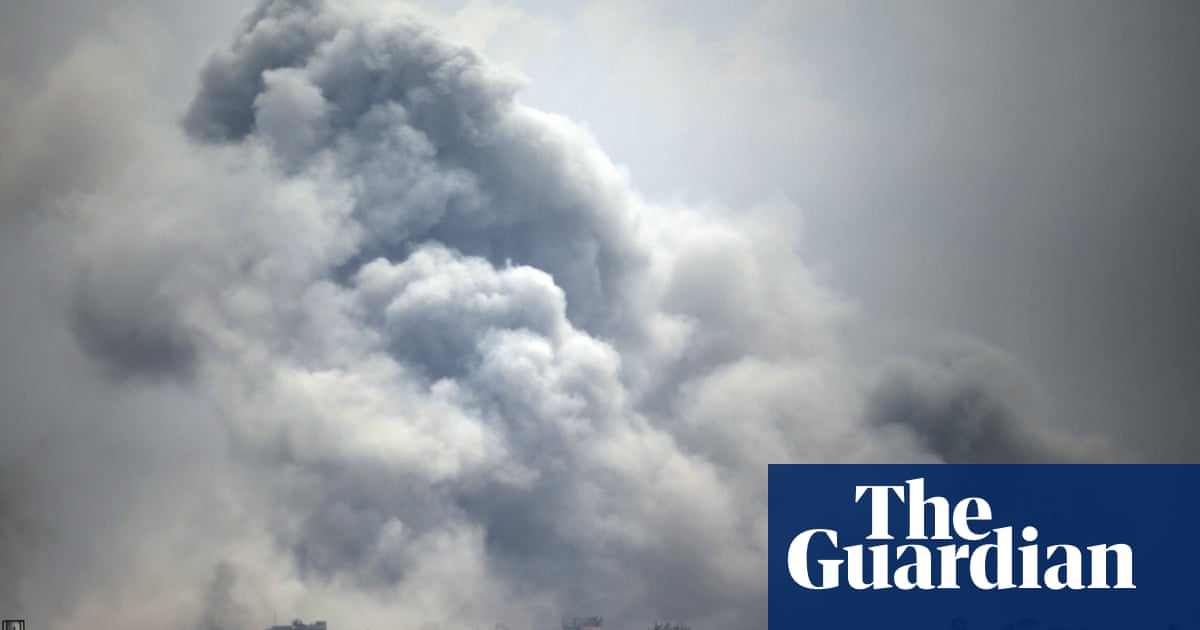At least 140 Palestinians have been killed in Gaza in the last 24 hours, a deadly escalation asIsraelseemed poised to launch a major offensive in the besieged territory.
Israeli strikes inGazahave killed more than 300 people since Thursday, Palestinian health officials said, one of the deadliest periods in the war since ceasefire talks broke down in March. The intensified bombing campaigns came as Israel’s total blockade on humanitarian aid have prompted fears of a famine in the Palestinian territory.
“Since midnight, we have received 58 martyrs, while a large number of victims remain under the rubble. The situation inside the hospital is catastrophic,” said Marwan al-Sultan, the director of the Indonesian hospital in northern Gaza early on Saturday. The death toll in the last 24 hours was at least 146, according to Reuters.
The escalation in attacks was condemned by the UN human rights chief, Volker Türk, on Friday, who said the bombing campaign was meant to displace Gazans and that it was equivalent to “ethnic cleansing”.
“This latest barrage of bombs … and the denial of humanitarian assistance underline that there appears to be a push for a permanent demographic shift in Gaza that is in defiance of international law and is tantamount to ethnic cleansing,” he said.
Turk’s comments were also echoed by the UN secretary general, António Guterres, who called for a permanent ceasefire while speaking at an Arab League summit in Baghdad on Saturday.
Israel said the bombardments were the initial phases of Operation Gideon’s Chariots, an expansion of the campaign in Gaza meant to “achieve all of the war goals in Gaza”. The strikes were accompanied by a large troop build-up along Gaza’s borders, aimed at establishing “operational control” of parts of Gaza.
The campaign, as well as the aid blockade on the territory, was meant to forceHamasto release hostages, Israeli officials said. The terrorist organisation took about 250 hostages during its October 2023 attack on Israel, which resulted in the deaths of about 1,200 people. Fifty-seven hostages are still held by Hamas.
The attacks came asDonald Trumpdeparted the Middle East after a four-day visit to Arab Gulf countries, which saw Saudi Arabia, UAE and Qatar pledge to invest billions in the US.
Hopes that Trump’s visit might bring renewed progress on truce talks in Gaza were dashed after Trump reiterated his desire to turn Gaza into a “freedom zone”. This was seen as a likely nod to his plan of the US assuming control over the Palestinian territory and turning it into the “riviera of the Middle East”.
A January ceasefire broke down in mid-March after Israel refused to move to a scheduled second phase that could have led to ending the war. Prospects of a lasting truce seemed further away as Israel’s security cabinet approved plans in early May that could involve seizing the entire Gaza strip.
Gaza ceasefire talks were also expected to dominate the Arab League summit, where Arab officials met on Saturday. The Iraqi foreign minister, Fuad Hussein, said that attending ministers would endorse a reconstruction plan for Gaza, a contrast to Trump’s offer to take over the Palestinian territory. Ministers later pledged $40m in reconstruction funds for Gaza and Lebanon.
Later on Saturday Hamas confirmed a new round of Gaza ceasefire talks with Israel was under way in Qatar’s Doha. A group official, Taher al-Nono, told Reuters both sides were discussing all issues without “pre-conditions”.
Israel’s offensive in Gaza, launched in retaliation for the October 2023 attacks, has killed about 53,000 people in Gaza, according to Palestinian health authorities.
Widespread hunger and malnutrition among children have also soared, after Israel cut off vital humanitarian aid to the territory on 2 March. There is little medical care in Gaza, due to scarce supplies and repeated Israeli strikes on hospitals and medical facilities.
The UN aid chief ,Tom Fletcher, urged a resumption of aid to Gaza in a speech to the UN security council on Tuesday, where he said famine loomed.Israel has consistently denied that its 10-week blockade is causing hunger in Gaza. However, Trump acknowledged on Thursday that “a lot of people were starving in Gaza.”
Israel, which claims Hamas hijacks aid to fund its military, has proposed a plan to distribute aid from hubs in Gaza run by private contractors and guarded by Israeli troops. The US has backed the plan, and a body called the Gaza Humanitarian Foundation is set to begin carrying out the plan by the end of the month.
Aid groups described the plan as unworkable and potentially unlawful as it could lead to forced displacement. They urged Israel to lift its blockade and to rely on the UN and other existing humanitarian bodies, which have long experience in transporting aid into Gaza.
“We can save hundreds of thousands of survivors,” Fletcher said. “We have rigorous mechanisms to ensure our aid gets to civilians, and not to Hamas.”
